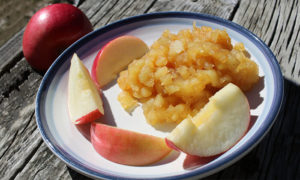Vegan Camping and Hiking Tips

Camping and hiking as a vegan presents a unique set of challenges and rewards. Preparing carefully ensures that you can enjoy the great outdoors while adhering to a vegan lifestyle. From selecting the right gear to efficiently planning your meals, every detail contributes to a seamless experience. The key is to prioritize plant-based nutrition that will fuel your adventures without compromising your dietary principles.
Securing suitable vegan food options and understanding the best ways to prepare them in the wilderness are essential. High-energy, lightweight foods are your allies, and maintaining hydration with suitable beverages will keep you at your best. Awareness of leave-no-trace principles, wildlife interactions, and campsite cooking techniques also enhance your journey, ensuring you leave the environment as untouched as possible.
Key Takeaways
- Plan and pack high-energy, lightweight vegan foods for optimal nutrition and ease of transport.
- Know vegan camp cooking techniques and the gear needed for efficient meal preparation.
- Stay hydrated and adhere to leave-no-trace principles to enjoy a sustainable outdoor experience.
Essential Vegan Camping and Hiking Gear
When you’re vegan and love the great outdoors, certain gear can make your camping or hiking experience more enjoyable and aligned with your values. Ensure that your gear is not only vegan but also suitable for the terrain and weather conditions you’ll encounter.
Selecting the Right Backpack
Your backpack is the cornerstone of your gear, holding everything you need while respecting your vegan lifestyle. Opt for sustainable materials like hemp or recycled plastics, avoiding leather accents and trims. Ensure it has enough capacity for your trip duration, typically ranging from 30 to 50 liters for weekend hikes and 50 to 70 liters for longer treks. Comfort is key, so look for features like padded straps and an ergonomic fit, especially when carrying heavy loads.
Choosing a Sleeping Bag and Shelter
A good night’s sleep starts with the right sleeping bag and shelter. For vegan campers, synthetic fill sleeping bags provide warmth similar to down without animal products. Check the temperature rating to match the weather conditions you’ll face. Your shelter, be it a tent, hammock, or bivy sack, should also be vegan-friendly, steering clear of materials like silk. Lightweight and easy-to-assemble options will keep your backpack manageable.
Footwear for Various Terrains
The right hiking shoes are imperative for tackling different terrains safely and comfortably. Vegan footwear often uses synthetic materials that offer waterproofing, breathability, and durability, rivaling traditional leather boots. Consider the type of hiking you’ll be doing—whether it’s rocky mountains or muddy trails—to find a boot or shoe with suitable tread and support. Remember to break them in before hitting the trail to avoid blisters and discomfort.
Planning Your Vegan Camping Meals
When venturing into the wild, your nourishment is crucial. It’s important to prepare vegan camping meals that are nutritious and satisfying. Efficient packing of cooking equipment, as well as proper food storage, will ensure your adventure is both gratifying and environmentally conscious.
Creating a Balanced Meal Plan
Nutrition: Your meal plan should include a variety of proteins, carbohydrates, and fats, alongside plenty of vitamins and minerals. Opt for high-protein vegan foods such as lentils, beans, quinoa, and nuts. Whole grain breads and pastas provide complex carbohydrates for sustained energy, while seeds and nuts will offer healthy fats.
- Breakfast might be oatmeal with nuts and dried fruits.
- Lunch could include whole grain wraps filled with hummus and veggies.
- Dinner may feature pre-cooked quinoa, mixed with black beans and a spice blend for flavor.
Vegan Cooking Equipment
You’ll need a few key pieces of equipment to prepare your meals.
- Camping stove: A reliable camp stove is indispensable for boiling water and cooking meals.
- Cookware: Pack lightweight pots and a non-stick pan, along with utensils like a spatula and wooden spoon.
- Heat-resistant foil comes in handy for grilling vegetables directly over a fire.
Ensure your equipment is durable and appropriate for the type of camping you’ll be doing.
Food Storage and Preservation
Cooler: Investing in a high-quality cooler can keep perishables fresh for the first few days. Use ice packs or blocks of ice for optimal refrigeration.
Dry Storage: Use sealable containers or resealable bags to keep dry foods like nuts, seeds, and grains fresh and protected from pests.
Foil and Containers: Wrap certain foods in foil to prepare for the campfire, and use airtight containers for leftovers to maintain freshness and avoid attracting wildlife.
Vegan Food Ideas for Camping and Hiking
When you’re out in the wild, your energy and nutrition should be your top priorities. Here’s how you can ensure that with these vegan and plant-based options which are also convenient and delicious for camping and hiking.
Energizing Breakfasts
- Oatmeal: Start your day with a warm bowl of oatmeal. It’s lightweight to carry and quick to prepare. Customize with dried fruits and nuts for added flavor and nutrients.
- Pancakes: Whip up some fluffy vegan pancakes using just-add-water mixes. Pack vegan chocolate chips for a sweet twist, or top with fresh fruits if available.
Satisfying Lunches and Dinners
- Sandwiches and Wraps: Create hearty sandwiches or wraps with a variety of veggies and plant-based spreads. Pre-packed vegan burgers are also great for grilling at the campsite.
- Chili: A one-pot vegan chili can be a comforting end to an active day. It’s easy to make ahead and reheat, plus it’s packed with proteins from beans and grains.
Healthy Snacks and Treats
- Trail Mix: Make your own trail mix with a combination of nuts, vegan marshmallows, and dark chocolate bits for a quick energy boost during hikes.
- Dried Fruit: Bring along various dried fruits for a sweet, chewy snack that’s full of natural sugars and fibre.
- Hot Beverages: Enjoy the comfort of coffee or tea by the fire. They’re not only warming but also provide a calming effect after a long day of activities.
Hydration and Beverages
Staying adequately hydrated is crucial for your health and performance while enjoying vegan camping and hiking. You’ll need to plan not just for water consumption, but also for safe water purification and storage. Vegan-friendly beverage options like tea and coffee can also be factored into your hydration strategy, provided they are consumed in moderation as part of your overall fluid intake.
Water Purification and Storage
When you’re in the wilderness, access to clean water is essential. Around half of outdoor enthusiasts consume 2-3 liters of fluids per day, which adheres to general hydration recommendations. However, sources of water in the outdoors aren’t always safe to drink directly due to potential contamination. It’s imperative to use water purification tablets when necessary to eliminate pathogens from natural water sources.
To carry your water, opt for durable, leak-proof containers. If you enjoy hot beverages, such as herbal tea or coffee, bring along an insulated flask to maintain temperature for longer periods. Be sure to pack vegan-friendly tea and coffee options, ensuring that any additives, like sugar or creamers, align with your dietary choices. Remember, although caffeine can offer a temporary energy boost, it can also lead to increased urination, so balance your intake with plenty of water.
Keep a close eye on your hydration levels by regularly checking in with your body’s thirst signals. Carry enough water to last between refills, and never pass up an opportunity to restock at a reliable water source.
Leave-No-Trace Principles
When you embark on your next camping or backpacking trip, it’s crucial to follow Leave-No-Trace principles to minimize your environmental impact. These guidelines help ensure that natural habitats remain undisturbed and that future hikers can enjoy the same beauty. Here’s what you need to know:
Plan Ahead and Prepare: Research your destination and familiarize yourself with local regulations and weather conditions. This helps you reduce your impact and maximize safety.
Travel and Camp on Durable Surfaces: Use established trails and campsites. Avoid trampling vegetation and widening trails. If you’re going off-trail or camping in less-trafficked areas, seek out surfaces like rock, gravel, or dry grasses.
- Dispose of Waste Properly: All waste, including food scraps and hygiene products, must be packed out or disposed of in proper receptacles. If in the backcountry, bury human waste in catholes 6-8 inches deep, at least 200 feet from water, camp, and trails.
Leave What You Find: Preserve the past; examine but do not touch cultural or historical structures and artifacts. Leave rocks, plants, and other natural objects as you find them.
Minimize Campfire Impacts: Opt for a lightweight stove for cooking and enjoy a candle lantern for light. If you must build a campfire, do so in established rings and keep it small. Use only fallen wood.
Respect Wildlife: Observe wildlife from a distance. Do not feed animals, as this damages their health and alters natural behaviors.
Be Considerate of Other Visitors: Preserve the solitude and tranquility of the wilderness. Avoid loud noises and let nature’s sounds prevail.
Incorporating these principles into your trip not only protects the environment but also enhances your experience. Be a mindful traveler and leave each place better than you found it.
Dealing with Wildlife
When you’re immersing yourself in nature through camping or backpacking, it’s crucial to acknowledge that you’re a guest in the home of local wildlife. Here are some tips to help you coexist safely and respectfully with animal inhabitants:
-
Keep a Clean Camp: Store your food in animal-resistant containers or hang it between two trees at least 10 feet above the ground and 4 feet from each trunk. This minimizes the chance of attracting animals to your site.
-
Be Aware of Your Surroundings: Whether you’re hiking or setting up camp, always observe the signs of wildlife around you. Tracks, droppings, and markings on trees can indicate recent animal activity.
-
Respect Wildlife: Maintain a safe distance from animals. Use binoculars for a closer look and avoid feeding or approaching them, as this can alter their natural behaviors.
-
Know How to React: In the event of an encounter, know the recommended response for the specific animal. For bears, speak calmly and back away slowly; for snakes, give them space to retreat.
-
Travel in Groups: When possible, hike or camp with at least one other person. Groups are less likely to surprise wildlife and can be more intimidating to animals.
-
Stay on Trails: By sticking to designated paths, you reduce the chance of wandering into an animal’s territory.
-
Bring the Right Gear: A whistle or bear spray (where permitted) can be useful deterrents in an unexpected wildlife encounter.
Remember, your safety and the protection of wildlife are paramount. Enjoy your outdoor experiences with respect and caution.
Vegan Food Preparation Tips
When embarking on a vegan camping or hiking trip, preparing your meals beforehand is crucial. This ensures that you have access to nutritious and satisfying food that aligns with your dietary choices even without the convenience of a kitchen.
Cooking without Refrigeration
For your camping meals where refrigeration isn’t an option, focus on non-perishable vegan camping food. Items like canned beans and refried beans are protein-rich choices that don’t require cooling. Pack them alongside whole grain tortillas and a savory sauce to create hearty wraps that can be enjoyed anytime.
- Beans: Choose a variety of canned or vacuum-packed beans for a balance of flavors and nutrients.
- Sauces: Opt for shelf-stable sauces that can add zest to your beans and grains.
- Tortillas: A stack of tortillas can be the base for many meals; they’re durable, versatile, and don’t require refrigeration.
Nutrition and Energy Maintenance
When embarking on a camping or hiking trip, maintaining your energy through proper nutrition is critical. As a vegan, it’s vital to find plant-based foods that are not only nourishing but also convenient for outdoor activities.
High-Protein Vegan Options
Protein is essential for muscle repair and energy while hiking. Your plant-based diet can be rich in protein with options such as tofu and tempeh, which are versatile and can be prepared in advance. Chickpeas also serve as a solid protein source, and you can enjoy them in salads, sandwiches, or even as a crunchy snack when roasted. Here are high-protein vegan foods ideal for your trip:
- Tofu: Easily marinated and added to stir-fry dishes.
- Tempeh: Great for hearty, satisfying sandwiches.
- Chickpeas: Perfect for hummus or as a salad topping.
- Seeds and Nuts: Grab a handful for a quick and nutritious snack.
Remember to pack a mix of these proteins to keep your meals interesting and your body fueled.
Vital Nutrients for Hikers
Energy maintenance goes beyond just protein. Including a variety of vitamins and minerals in your diet ensures you have the stamina for hiking. Nutritional yeast is a powerhouse, offering a cheesy flavor while being rich in B vitamins, perfect for sprinkling onto meals. Seeds, such as flax and pumpkin, as well as nuts, provide omega-3 fatty acids and essential fatty acids, critical for inflammation control and brain health. Iron, found in leafy greens, should be coupled with vitamin C rich foods like bell peppers to enhance absorption.
- Nutritional yeast: Sprinkle for flavor and B vitamins.
- Seeds and nuts: Snack on for essential fats and trace minerals.
- Leafy greens: Incorporate into meals for iron.
- Vitamin C rich foods: Combine with iron-rich foods for better iron absorption.
Consume a balanced variety of these nutrients to maintain your energy levels and support your body’s needs.
Packing Light with High Energy Foods
When embarking on a vegan camping or hiking adventure, selecting the right high energy foods that are both lightweight and satisfying is crucial to maintain your energy levels without weighing down your pack.
Compact and Nutrient-Dense Foods
Trail Mix: Create your own blend of trail mix with a variety of nuts, seeds, and dried fruits. Almonds, walnuts, and pumpkin seeds offer healthy fats and proteins, while raisins and dried cranberries provide quick energy boosts. Remember to balance the mix to cater to your taste and nutritional needs.
Nuts and Seeds: These are ideal for their high calorie-to-weight ratio. Opt for unsalted and raw varieties like cashews, sunflower seeds, and flax seeds to avoid unnecessary sodium intake.
- Almonds: 160 calories per ounce
- Sunflower seeds: 175 calories per ounce
Dried Fruits: Lightweight and rich in natural sugars, they’re great for a quick pick-me-up. Choose apricots, figs, or dates for a fiber-rich snack.
- Dried apricots: 70 calories per ounce
- Dates: 66 calories per ounce
Granola Bars: Look for bars that contain whole food ingredients and minimal additives. Quality vegan granola bars can offer a balance of carbohydrates, fats, and protein.
- Opt for bars with nuts, seeds, and a sweetener like agave nectar or maple syrup.
-
Snacks: Pack portable snacks like roasted chickpeas or air-popped popcorn seasoned with nutritional yeast for savory cravings.
By focusing on these nutrient-dense foods, you’ll ensure you have the sustained energy necessary for your adventures, without the extra bulk. Keep portions sensible and pack only what you need, keeping in mind the duration of your trip and your body’s caloric requirements.
Campsite Cooking Techniques
Mastering a few campsite cooking techniques can transform your vegan camping experience. Equipping yourself with the right tools and ingredients—such as a dependable camp stove, durable cookware, and a variety of vegan-friendly foods—will enable you to enjoy delicious meals under the stars.
Campfire Cooking Basics
When cooking over a campfire, you’ll need to establish a good bed of coals; this provides a consistent heat source for cooking. Invest in a sturdy grill grate that can be placed over the fire for direct heating. Remember, not all marshmallows and graham crackers are vegan, so look for specific vegan brands to indulge in your s’mores cravings. For savory items like vegan hot dogs, skewer them on a long stick or metal skewers and rotate them over the flames until they’re heated through. Utilize aluminum foil to create hobo packets; you can wrap sliced vegetables, seasonings, and a dab of nut butter, sealing the edges tightly before placing them in the coals to cook.
No-Cook Vegan Meal Ideas
Sometimes you may prefer to forgo cooking altogether, perhaps due to fire restrictions or simply to save time. For no-cook meals, focus on ingredients that are flavorful and nutritious. Peanut butter or your favorite nut butter serves as a hearty base for sandwiches or wraps; pair it with bread or tortillas for a quick meal. Hummus is another versatile spread that’s perfect with bread or as a dip for raw vegetables. Assemble salads ahead of time with a variety of beans, seeds, and fresh veggies, and dress them on-site. Simple snacks like trail mix, fruits, or energy bars are excellent for sustenance and energy while on the trail.
Frequently Asked Questions
When planning your vegan camping and hiking journey, it’s important to focus on nourishing, high-protein meals and snacks that are both satisfying and easy to store. The right choices will ensure you maintain energy throughout your adventures.
What are some high-protein vegan options for backpacking meals?
For your protein needs, consider packing dehydrated beans, lentils, quinoa, nuts, and seeds. These are lightweight and can be easily rehydrated on the trail for a nutritious boost.
How can I make my own vegan trail mix that’s both nutritious and satisfying?
Create a trail mix with a balanced blend of nuts, such as almonds and walnuts, seeds like pumpkin or sunflower, and dried fruits for a touch of sweetness. Adding dark chocolate chips can make it even more rewarding.
Which vegan meal options are recommended for maintaining energy during long hikes?
Opt for complex carbohydrates and proteins like whole grain wraps with nut butters, dehydrated vegetable soups augmented with lentils, and energy bars made from oats and hemp seeds.
What are the best practices for storing and carrying vegan food on multi-day hiking trips?
Pack foods in waterproof and airtight containers to preserve freshness and prevent spoilage. Use bear canisters when necessary to protect wildlife and your supplies.






